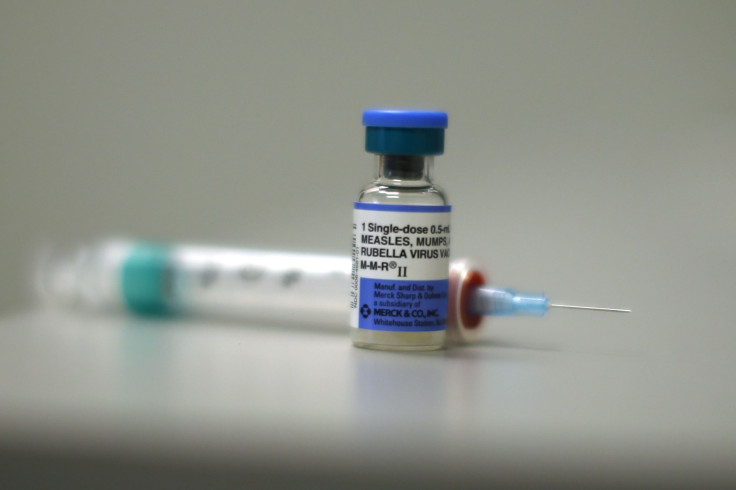Health News Might Not Matter In The Vaccine Debate; It's The Comments That Convince People

The measles virus continues to spread throughout the United States (and Germany, who is apparently suffering from an even worse outbreak). The number of cases in California alone, where the current outbreak originated, have reached over 100 and spread to other states, including Arizona, Illinois, New Jersey, and Ohio. So what will start encouraging those who are anti-vaccines to vaccinate themselves and children: a credible public service announcement (PSA), or random online comments?
The answers seems obvious — a PSA, duh. But a new study from Washington State University offers some interesting insight. For two separate experiments, researchers made-up pro- and anti-vaccine PSAs sponsored by the Centers for Disease Control and Prevention (pro-vaccine) and the National Vaccine Information Council (anti-vaccine). Afterwards, study participants read comments from fake online users.
When asked if participants would vaccinate themselves and their family members, researchers found they were equally persuaded by PSAs and online comments. Study author Ioannis Kareklas was blown away participant’s would equally trust both sources of information, especially given the type of users known to dwell in the comment section. Yes, trolls; we mean you.
In the second experiment, researchers’ made-up information about the people who were commenting on the PSAs (compared to not giving them any background in the first experiment.) Now, these commenters were English literature students, lobbyists specializing in health care, and doctors specializing in infectious diseases and vaccinology. The results showed the “doctor” comments impacted participants more than the PSAs.
“We found that when both the sponsor of the PSA and the relevant expertise of the online commenters were identified, the impact of these comments on participants' attitudes and behavioral intentions was greater than the impact of the PSA and its associated credibility," the researchers wrote. They concluded online media strategies should focus on credible exchanges of information in order to truly improve user welfare.
But in an interview with Vox, Eula Bliss, a lecturer at Northwestern University, said the current debate surrounding vaccines goes beyond scienc-backed information. To her, who learned to support vaccines after initially being against them, this is a social debate.
“With this measles epidemic, it’s becoming more obvious that one of the conversations that’s happening sub-textually — and now increasingly not sub-textually, but overtly — is the question of what is the relationship between the individual and the collective?" Bliss said. "What does the individual owe society, and what does society owe the individual? The root question is a question of how do we live together? What’s a responsible way to be a citizen?”
Though Bliss added she's found people are afraid of vaccines for a variety of reasons, the foundation for these reasons is largely, and simply, fear. And though she's personally found preventive medicine is worthwhile, she reminds readers she’s just an essayist, not an expert.
Fingers-crossed this level of transparency inspires other, less credible online commenters.
Source: Kareklas I, Muehling D.D., and Weber, T. J. Reexamining Health Messages in the Digital Age: A Fresh Look at Source Credibility Effects. Journal of Advertising, 2015.



























